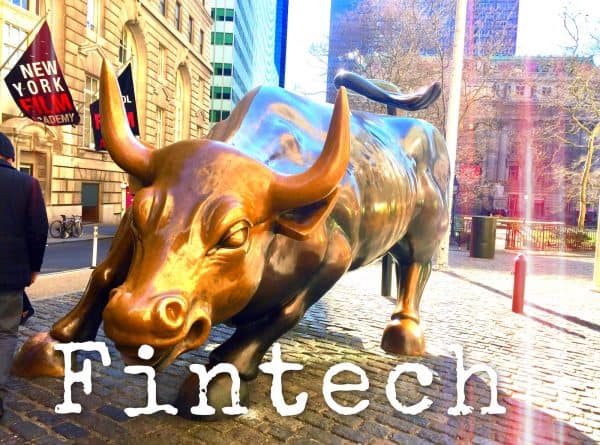QED Investors is one of the most prolific venture capital firms focusing on Fintech in the world. With more than one hundred portfolio companies and over a dozen exits, QED has touched almost all sectors of Fintech. Big Fintech names have received the backing of QED, firms like Zopa, Creditjusto, Roofstock, SoFi, and many others are on the list. While QED has been extremely successful, faltering markets, high inflation, and rising interest rates have had an impact. We have all read about Fintechs doing down rounds as many early-stage ventures still need funding to execute their plans. As rates are expected to continue to move higher, currently, there is no light at the end of the tunnel.
Recently, CI connected with Bill Cilluffo, Partner and Head of Early-Stage Investments at QED Investors, to discuss trends he’s seeing around startups scaling in the current market downturn. Cilluffo joined QED as a Special Advisor in 2014, quickly becoming a partner the following year. Prior to joining QED, Cilluffo spent several decades at Capital One. Today he is leading Fintech investment teams in Latin America, Europe, and Asia. One big deal he managed was QED’s participation in Nubank, the digital bank taking over Latin America, so he has an excellent global perspective of VC markets. Our discussion with Cilluffo is shared below.
What are you seeing in the VC market right now in regard to Fintech on valuations? Overall activity?
Bill Cilluffo: In terms of overall activity and Fintech valuations, both are down. The 2022 Q2 numbers for Fintech funding worldwide were down something like 30 percent, the lowest total since the end of 2020. We can anecdotally say that valuations are down around the deals that are getting done. It’s worth reinforcing that deals are getting done and activity happening. If you look at the numbers, it’s still above where it was prior to COVID, so it’s not dead by any stretch.
Is QED participating in follow on rounds for firms in need of additional capital?
Bill Cilluffo: Our overall investment activity is down, but we have invested in a handful of new companies lately, as well as participated in follow-on rounds.
If you look at the dollars that have gone out, it’s probably been more focused on our existing portfolio than it might have been in previous years.
What about M&A? Are there opportunities in specific sectors of Fintech that have been saturated? Especially if money has dried up and better-funded firms can benefit?
Bill Cilluffo: Right now, conceptually at least, M&A could be interesting if there are companies that might otherwise have been funded that now potentially can’t. There’s the opportunity for better-funded companies to pick up struggling ones for a host of reasons. Truthfully, we haven’t seen much. One of the most common reasons for that is almost all companies that are better funded, and in better shape, are still trying to reduce burn and have their capital last longer. The companies that can be picked up relatively cheaply still come with burn and the need to inject more capital into them. That has been a deterrent for a lot of companies.
Once the markets settle down, and the ability for the best companies to raise capital is heading back to a good path, is when you’ll likely see M&A pick up.
Now, there’s enough uncertainty that everybody is cautious with capital-intensive expansion. Not to say there’s nothing happening, but it’s lighter than I might have guessed.
Historically, Fintech segments have cycled with various sectors hot and then not. What is hot today, and what are your expectations going forward (2023)?
 Bill Cilluffo: Sectors like embedded Fintech are still interesting. We’re still seeing a lot of activity and talking to many companies, whether that’s infrastructure providers, financial services providers to, nonfinancial products, or integrated companies, such as Nuvocargo and Zubale from our own portfolio.
Bill Cilluffo: Sectors like embedded Fintech are still interesting. We’re still seeing a lot of activity and talking to many companies, whether that’s infrastructure providers, financial services providers to, nonfinancial products, or integrated companies, such as Nuvocargo and Zubale from our own portfolio.
Another example is that while B2C Fintech has cooled, B2B infrastructure and payments companies are still attracting attention.
My instinct is we’re not at the bottom of activity yet. The market’s adjusted quickly, but we’re still seeing pockets that haven’t adjusted. There is still a waiting game because there are so many more mature companies that raised a ton of money last year and aren’t having to raise. As some of these companies continue to run out of money and need money, there still haven’t been many down rounds that have happened. People are skittish about pricing rounds and knowing what the correct price should be. Sometime next year is likely when we will start to see the rubber hit the road on this.
On the flip side, there’s still a ton of dry powder out there. Venture, growth, and PE firms have raised huge funds, and nobody is feeling pressure to deploy right now.
QED has been very active in Latin America. Do you still see opportunities in this region?
Bill Cilluffo: QED is a big believer in LatAm. The incumbents control huge portions of the market with relatively poor customer service and high margins and returns. There is room for a lot of disruption in this market, both with existing companies able to grow more and ones that are left to be created. Even at fintech’s peak in LatAm so far, venture capital dollars as a share of GDP were a small fraction of what we’ve seen in the U.S. There’s a long way to go compared to what the U.S. and other developed markets are seeing.
Is the recessionary environment an opportunity for some Fintechs that can provide superior services at a lower cost than Traditional Finance?
Bill Cilluffo: We think so.
On one hand, Credit Karma was built in the 2007-2008 U.S. financial downturn. Nubank was mostly built from 2015 to 2017, during a large Brazilian downturn. I Downturns can be interesting times to build these companies because the incumbents get conservative.
There are parts of the market that are underserved, and starting the growth process during the tough times means when things start to turn, you can really ride that wave. Tech companies are usually nimbler, taking advantage of these growth periods, whereas the incumbents tend to be a bit lagged. Outside of the funding environment and making sure you can get your first funding, for companies that can, now is an exciting time to think about starting something.


